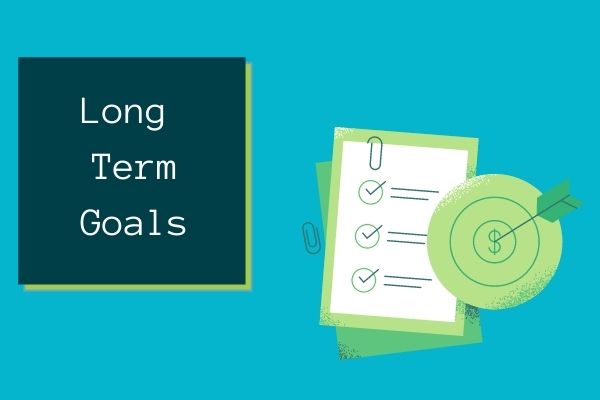The key to leading a peaceful life is planning your financial future. Nobody can plan your finances better than you can. Therefore, it is important to create a financial plan as soon as you start earning. A solid financial plan is important to save money and to secure your financial future. It helps you achieve the goals you have set for your life such as saving for college and post-retirement life. Life is getting more uncertain with time. This makes it more important to save money to secure your financial well-being.
In this article, we are going to share how you can embark on your journey to financial independence. So without further ado, let’s get into the details.
Verified Top Pick
Avail 10% discount on everything on applying given coupon code at checkout. Act on this offer now.
Verified Top Pick
Receive 10% off on your every order with coupon code.
Verified Top Pick
Cosmeticos24h is currently offering a 5% discount on all items with the provided discount code.
How Can I Protect My Financial Future?
Everyone is different and has different financial goals. It means there isn’t a specific set of rules to be followed when it comes to
creating a financial plan. Everyone wants financial independence. But before doing so, you need to identify your goals and come up with ways to achieve them. With 2021, we have just entered a new decade and it’s time to set new financial goals to secure your future.
8 Steps To Protect Your Financial Future:
Following are the steps you need to take to protect your financial future:
1. Identification Of Long-Term Goals:
The new decade should start with new goals, both personal and financial. The first step to securing your financial future is to identify your financial goals. Whether you are in college, working, or about to retire, no matter which stage of life you are in, you can start saving by carefully choosing your goals. As for personal goals, you could be
planning a wedding, starting a family, or moving to a new city, all these will have some serious financial repercussions that need to be planned accordingly.
Types Of Financial Goals:
You have different goals at different stages of your life. For example
- If you are in high school, you need to save money to meet your college expenses.
- If you have a job, you should save to pay your loans as soon as possible and save for post-retirement life.
- If you are about to retire, you should save to become debt-free. You should retire with sufficient corpus to maintain the standard of living you have with a job.
2. Align Compound Interest With Your Goals:
The method used to reapply interest to a principal is referred to as compound interest. The principal is the sum of money you invest or put into savings. This interest grows over time. Compound interest allows you to build your wealth when it applies to your savings and investments. In simpler words, it is interest on interest.
You can turn it into a powerful force for your finances by leaving it untouched for the longest time period. Your principal feeds on itself and grows larger with time. This means you can maximize your wealth by investing it or putting it into a savings account.
3. Learn How To Budget:
Creating a budget that’s specific to your needs is important to future-proof your finances. For that, you need to study your bank statements in detail. You need to know how much you earn each month and what is spent on bills. Separate needs from your wants. You should ask yourself whether it’s necessary for you to
revitalize the living room or is it something you can put off for later.
You need to know where your money is going to identify the direction your financial situation has taken. Identify the factors that impact the incoming and outgoing of your money. This will put you in a much better position to sort out your expenses and create a budget that helps you meet your financial goals.
Tips for Creating An Effective Budget
- If you are spending more than you earn, you need to cut back some of your expenses.
- Get rid of unnecessary subscriptions and memberships.
- Don’t spend on the items you can do without.
- Look for cheaper alternatives.
- Use separate envelopes or pots to save money for rent, mortgage, bills, grocery, debt, and other expenses.
- Allocate a certain amount to each of these expenses and make sure you don’t go over it.
4. Contribute To Your Pension:
Whether you have just started working or you are about to retire, you need to plan for your future and save money for later. You need to plan how you are going to meet your expenses once you stop working. Most companies offer pensions with matched contributions. If that’s your company’s policy, you should take full advantage. Your contributions will build over time.
Every country differs in tax advantages offered towards pension contributions. The example includes Swiss Pillar 3 or United States 401K.
5. Pre-Plan Your Post-Retirement Life:
Define your goals before you go on to pursue them and be realistic about how much you should or can save to future-proof your finances. This is especially important for those who won’t get a state pension and need to save for retirement with the help of personal and company investments.
You should research all options available to you and how each of them will impact your savings. Various factors come into play when it comes to setting post-retirement goals including
- Your ideal retirement age
- What do you consider a comfortable retirement?
6. Consider Inflation Factor While Creating A Saving Strategy:
The rate of inflammation keeps going higher with every passing year. According to trends, this rate will keep getting even higher. You should save and invest keeping this rise in mind. It is important to factor the inflation aspect before creating a plan to future proof your finances. Keep your risk tolerance in mind while taking investment risks. Don’t go for similar options and look for varied investment opportunities.
Types Of Funds To Invest Into:
There are various types of funds you can invest into including
- PPF
- NPS
- ETFs
- Mutual funds
- Sovereign gold bonds
- Emergency funds
When faced with an emergency, having emergency funds helps. This indicates no matter which stage of professional life you are at, you should keep a sixth month's worth of funds to prevent financial distress. Increase the size of the emergency fund with your income and prepare for potential changes in responsibilities and the cost of living.
7. Get The Cheapest Deals:
Getting the cheapest deals is another way to ensure that you are saving money. You can find the best deals while paying for:
- Internet
- Home insurance
- Energy
- Mobile phone packages
- Car insurance
Various websites help you compare deals you can redeem to save money and to stick to your budget. Meanwhile, you can also browse
social media for deals and compare them yourself.
8. Make A Habit Of Using Coupons:
Discount coupons can save you more money than you can imagine. It is more like getting stuff for free. From grocery to bills and insurance, you can redeem coupons to save a considerable amount of money on your monthly spending. You can find these
coupons in your email inbox, websites dedicated to coupons, on the manufacturer’s website, and more.
Wrapping Up:
Saving money to secure your future is more important than ever before. Life is getting more uncertain and it is hard to predict when an emergency will strike. It is important to create a financial plan that secures you for the next ten years. Keep your goals in mind while creating a financial strategy that works for you.
Published on: March 04, 2022







